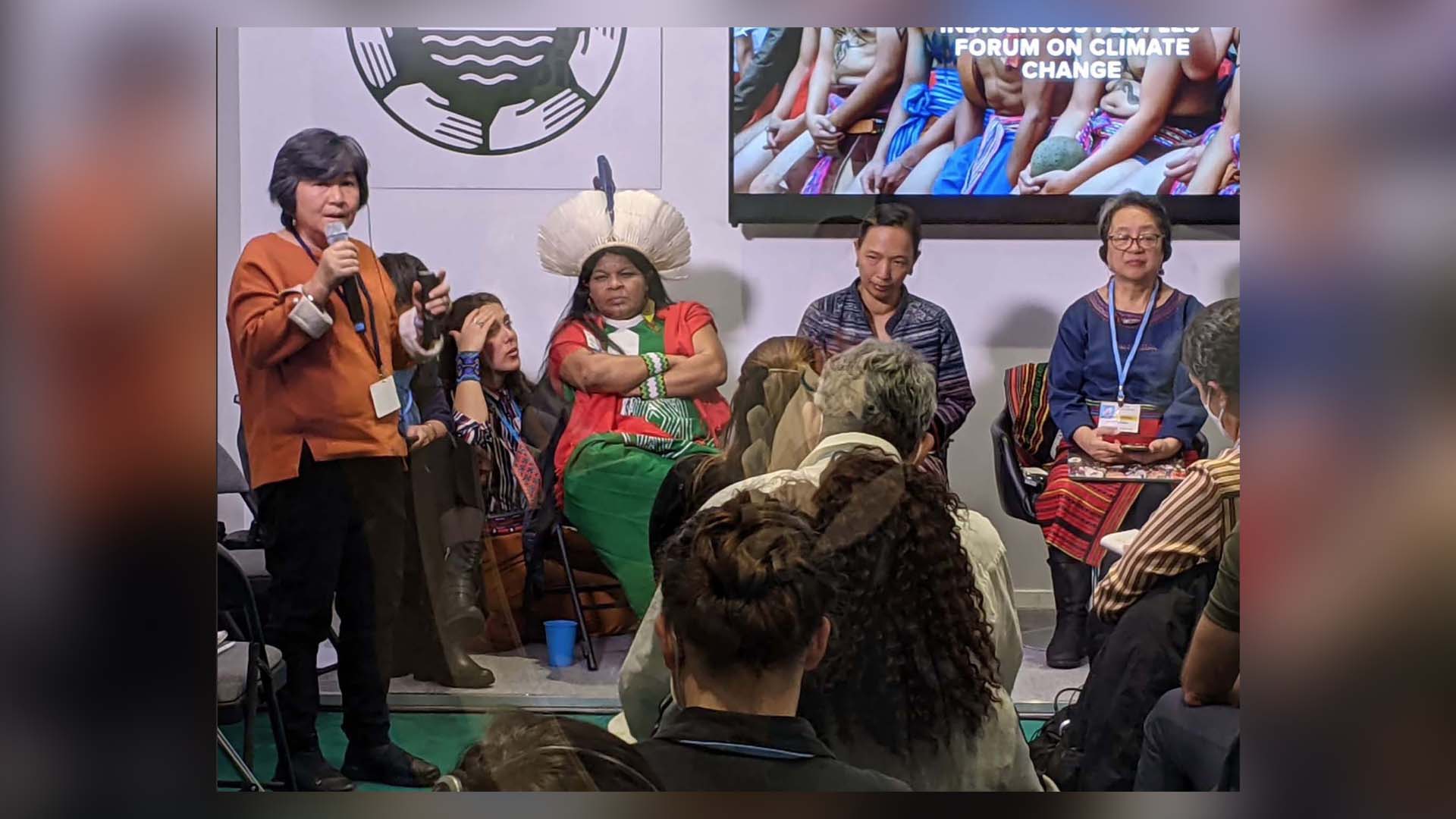November 5th, 2021. Indigenous Peoples hold in their knowledge and traditional livelihoods the solution to climate change and loss of biodiversity, expressed yesterday Indigenous leaders gathered in the "Partnership or Criminalization: Implications of the 30/30 Biodiversity Conservation Target to Indigenous Peoples" panel. In order to continue with their conservation, they added, it is necessary for the States and international organizations to respect Indigenous Peoples rights and restore their governance over their territories.
The panel, moderated by Vicky Tauli-Corpuz – former UN Special Rapporteur on the Rights of Indigenous Peoples-, was a side event to the COP26 Summit, and a part of the Indigenous Peoples Pavilion. Its aim was to discuss how to prevent the criminalization of Indigenous Peoples and ensure the protection and exercise of their rights in conservation efforts to reach the 30/30 Target -a proposal to increase by 2030 in 30 percent the Natural Protected Areas.
Joan Carling, co-founder and Executive Director of IPRI, denounced that fortress conservation is not gone and continues to produce massive human rights violations:
violent displacements, abuse of women, killings, torture, incarceration, and rape. All that is happening now, insisted Ms. Carling. Recently, IPRI conducted a research on conservation that is about to be published.
The leaders agreed that Indigenous Peoples do a better work in conservation. Jennifer Corpuz, Policy Adviser at Nia Tero, emphasized that biodiversity declines at a less quick level in Indigenous Peoples areas. Moreover, 80 percent of world’s biodiversity is within Indigenous Peoples territories.
Despite this, States and international conservation organizations do not recognize Indigenous Peoples tenure and wisdom and treat them as illegal loggers. Meanwhile, they do allow big businesses in Protected Areas, Ms. Carling said.
Against this background, Indigenous Peoples are concerned over the implications of the 30/30 Target over their territories. “How can you be criminalized while looking for means of survival? We are afraid that the 30/30 might lead to further violation of Indigenous Peoples rights if our voices are not heard and if conservation does not implement a human rights-based approach”, claimed Joseph Itongwa, Executive Director of ANAPAC.
“The problem is not the [30/30] target”, said Ms. Carling. “The problem is the way conservation is done”. Nonette Royo, Executive Director of Tenure Facility, underscored: “The issue is recognizing the rights of Indigenous Peoples of those territories that they are already protecting”.
Sonia Guajajara, leader of APIB, pointed that the territories that need to be restored are those degraded because of farmers. It is confirmed, insisted Ms. Guajajara, that this kind of degradation is the largest contributor to gas emissions.
Joan Carling said that Indigenous Peoples are looking for real on-the-ground partners that “treat us with respect and enhance our way to conservation”. These people and organizations could influence governments to respect Indigenous Peoples and could also provide technical support while recognizing Indigenous leadership. Ms. Guajajara insisted: “Traditional wisdom and scientific knowledge make better conservation”.
Ms. Royo said frankly: “Without us, climate and biodiversity issues cannot be managed. Without us, the UN Biodiversity targets cannot be met.”.
For this human rights approach on conservation, the Indigenous leaders set a series of guidelines: respect for their rights, previous consent, equity elements, co-arrangement agreements, to think in another conservation measures besides Protected Areas, restore governance over evicted territories, put a stop to criminalization, structural guarantees for Indigenous conservation, and access to justice for those who have been victims of human rights violations due to the fortress model.
“If we want to protect nature, we need to protect the stewards of nature”, called Ms. Carling.
Specifically, regarding international institutions working in conservation, it should be set measures of accountability and transparency, and guarantee that the money in these issues goes to the people that is actually protecting nature.
Regarding Indigenous Peoples themselves, it is necessary to address the specific needs of women, since they have a critical role in conservation but not in decision-making. Also, there is need for special attention to the youth in order to ensure transmission of Indigenous knowledge.
“It is time to let Indigenous Peoples to take the driver’s seat”, summarized Ms. Royo. “It is necessary to transform this system, and that is what Indigenous Peoples offer”, finalized Ms. Carling.


%2020.49.20.png)
